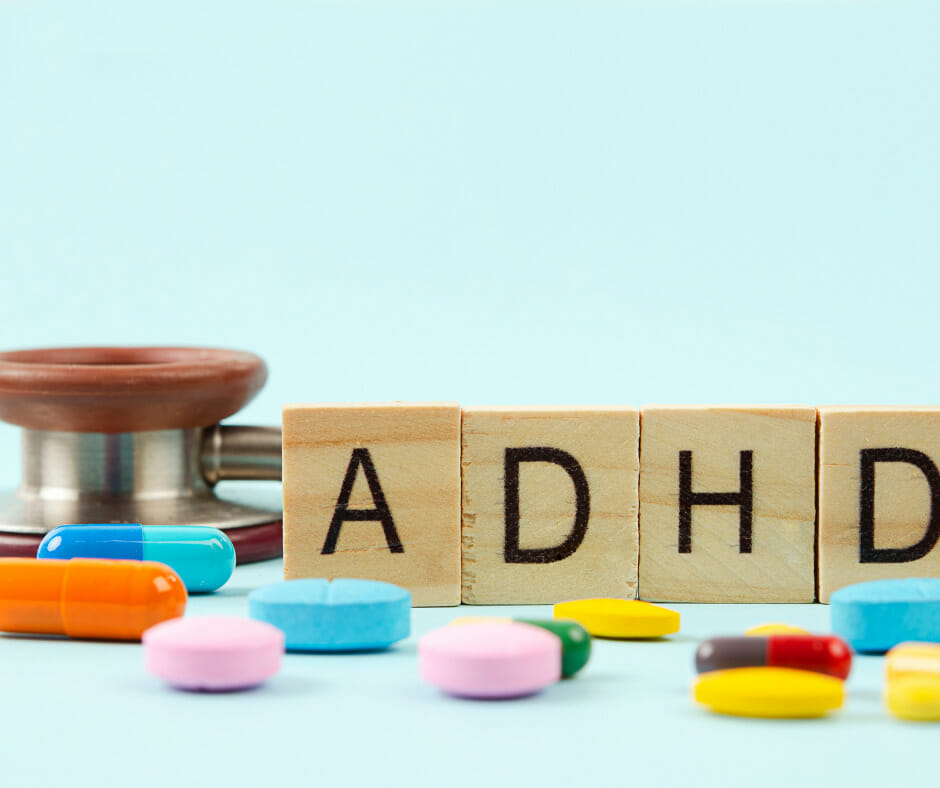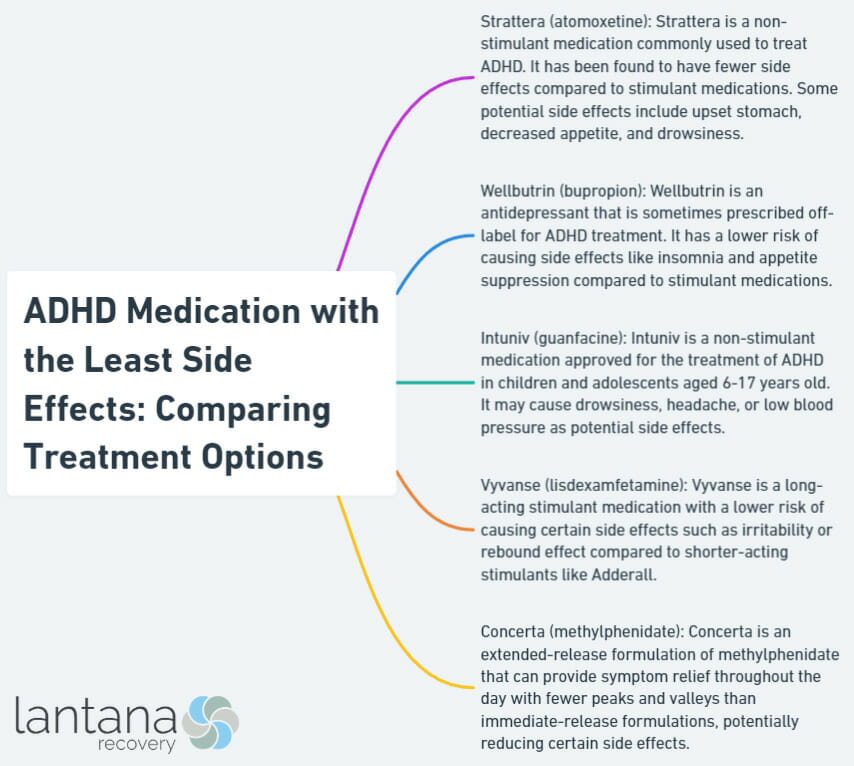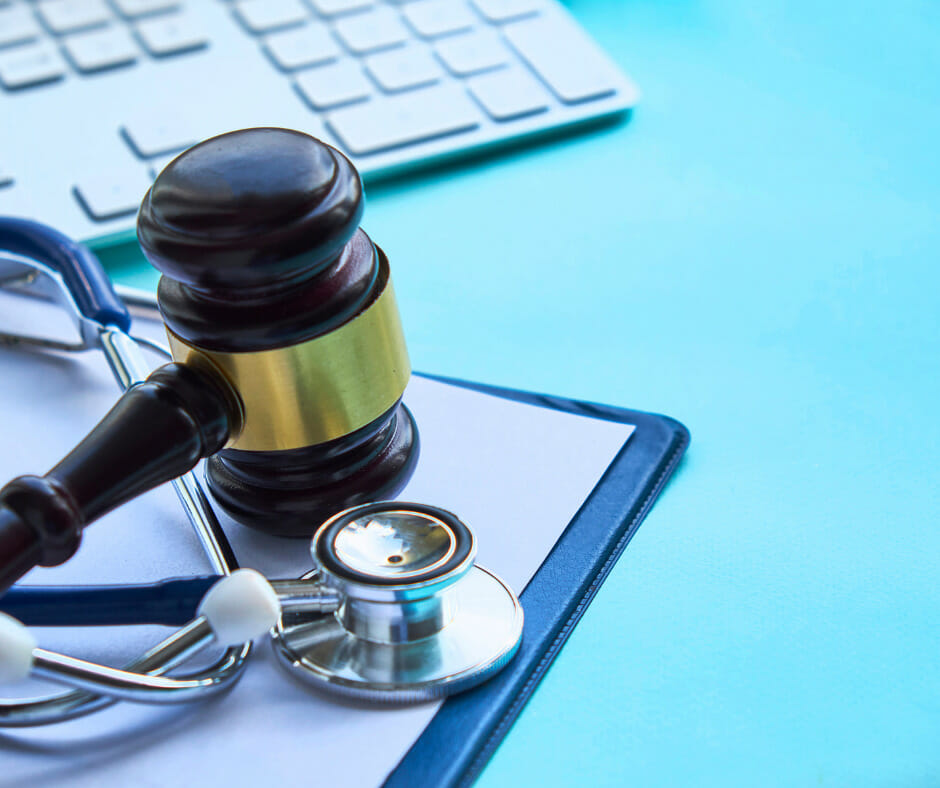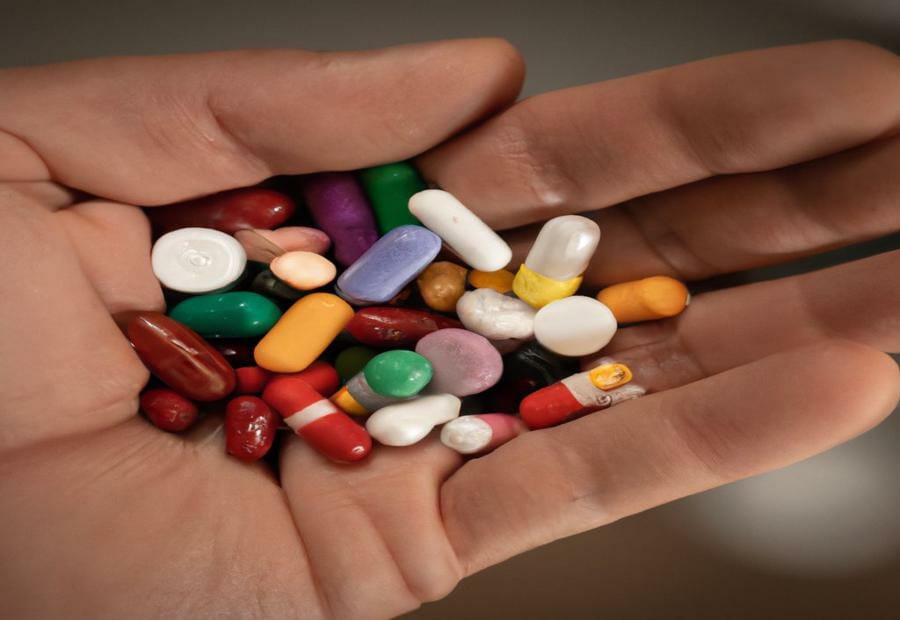ADHD (Attention-Deficit/Hyperactivity Disorder) is a neurodevelopmental disorder that affects both children and adults. It is characterized by symptoms such as inattention, hyperactivity, and impulsivity. While ADHD cannot be cured, it can be effectively managed with various treatment options, including medication. Understanding the available medications and their side effects is crucial for making informed decisions about ADHD treatment.
There are two main categories of ADHD medications: stimulant medications and non-stimulant medications. Stimulant medications are the most commonly prescribed treatment for ADHD and work by increasing certain chemicals in the brain that regulate attention and behavior. Non-stimulant medications, on the other hand, work differently and may be suitable for individuals who do not respond well to stimulant medications or have certain medical conditions.
Like any medication, ADHD medications can have side effects. Common side effects may include decreased appetite, sleep problems, and irritability. Although rare, there are also serious side effects associated with some ADHD medications, such as an increased risk of cardiac events or psychiatric symptoms.
When comparing ADHD medications, it is important to consider the side effect profile of each medication. Some medications may have fewer side effects or different side effects compared to others. It is crucial to weigh the potential benefits and risks of each medication based on individual needs, overall effectiveness, and potential side effects.
In addition to medication, other treatment options for ADHD include behavioral therapy and lifestyle changes. Behavioral therapy helps individuals develop coping strategies and improve social skills, while lifestyle changes such as regular exercise, healthy diet, and consistent sleep can contribute to symptom management.
It is important to consult with a healthcare professional when considering ADHD medication. A healthcare professional can evaluate the individual’s specific needs and provide personalized advice on treatment options. They can also discuss the potential side effects of each medication and address any concerns or questions.
By considering the available treatment options, understanding the side effects, and seeking guidance from healthcare professionals, individuals with ADHD can make informed decisions about their treatment plan and find the medication that offers the least side effects while effectively managing their symptoms.

Understanding ADHD and Its Treatment
ADHD is a neurodevelopmental disorder that affects both children and adults. Understanding ADHD and its treatment is crucial for individuals with the disorder and their families. It is characterized by symptoms such as inattention, hyperactivity, and impulsivity, which can significantly impact daily functioning.
When treating ADHD, a multimodal approach is recommended. This means using a combination of interventions and treatments to address symptoms and improve overall well-being.
Here are some important aspects to consider when understanding ADHD and its treatment:
- Diagnosis: Proper diagnosis is crucial for appropriate treatment. ADHD is diagnosed based on specific criteria outlined in the Diagnostic and Statistical Manual of Mental Disorders (DSM-5). Consult with a knowledgeable healthcare professional to determine the correct diagnosis.
- Education and Support: Understanding ADHD is essential for individuals with the disorder and their families. Educational resources and support networks provide valuable information on managing symptoms, accessing treatments, and coping strategies.
- Behavioral Therapies: Cognitive-behavioral therapy (CBT) and social skills training can benefit individuals with ADHD. These therapies enhance coping skills, improve self-control, and develop strategies to manage impulsivity and inattention.
- Medication: Medication may be prescribed based on symptom severity and individual needs. Stimulant medications like Adderall and Ritalin are commonly used. Non-stimulant medications like Strattera may also be prescribed as an alternative.
- Lifestyle Modifications: Implementing healthy lifestyle choices, including regular exercise, a nutritious diet, and adequate sleep, can support overall well-being and improve ADHD symptoms.
Remember, understanding ADHD and its treatment is crucial. By implementing appropriate interventions and seeking support from healthcare professionals, individuals with ADHD can better manage their symptoms and lead fulfilling lives.
What is ADHD?
ADHD, or attention deficit hyperactivity disorder, is a neurodevelopmental disorder that affects both children and adults. It is characterized by difficulties in paying attention, impulsivity, and hyperactivity.
In school, children with ADHD may struggle to stay focused or complete tasks, while adults may have difficulty managing time, staying organized, or maintaining relationships. It is important to understand that ADHD is not caused by laziness or lack of intelligence.
ADHD has a genetic component, according to a study published in Molecular Psychiatry, exploring the genetics of attention deficit hyperactivity disorder . These factors can significantly impact daily functioning and quality of life. However, with proper diagnosis and treatment, individuals with ADHD can lead fulfilling lives. Treatment options for ADHD include medication, behavioral therapy, and lifestyle changes.
It is crucial to consult a healthcare professional to determine the best treatment plan for individuals with ADHD. Factors such as specific needs, treatment effectiveness, potential side effects, and medical considerations will be taken into account. By understanding ADHD and its impact, we can provide the necessary support and interventions for those affected.

How is ADHD Treated?
ADHD is treated with medications, behavioral therapy, and lifestyle changes to manage symptoms and improve daily functioning. Treatment plans vary for each person, so consulting a healthcare professional is crucial.
- Medications: To effectively manage ADHD, stimulant and non-stimulant medications are commonly prescribed. Stimulants such as methylphenidate and amphetamine are used to increase brain chemicals, which enhance concentration and reduce impulsivity. On the other hand, non-stimulant medications like atomoxetine and guanfacine work differently but also help manage symptoms.
- Behavioral therapy: A crucial component in ADHD treatment is behavioral therapy. This therapy helps individuals develop coping strategies and improve their behavior. It focuses on promoting positive behaviors, managing impulsivity, and enhancing organizational skills. Behavioral therapy may involve individual or group sessions, with active involvement from parents and teachers.
- Lifestyle changes: Making certain lifestyle changes can greatly support the management of ADHD symptoms. These changes include establishing a consistent routine, setting clear goals, incorporating regular exercise, maintaining a healthy diet, and providing a structured and supportive environment.
When considering an ADHD treatment plan, one must take into account individual needs, treatment effectiveness, medication side effects, and medical considerations. It is essential to consult a healthcare professional to discuss the most appropriate options and potential side effects. With a comprehensive approach and guidance from a healthcare professional, individuals with ADHD can effectively manage symptoms and improve their quality of life.
Common ADHD Medications
When it comes to managing ADHD, understanding the various types of medication options is crucial. In this section, we’ll explore the world of common ADHD medications—diving into the benefits and characteristics of stimulant medications and non-stimulant medications. Get ready to discover the ways these treatments can help individuals with ADHD improve focus, increase attention span, and enhance overall quality of life.
No more feeling overwhelmed—let’s navigate the world of ADHD medications together!
Stimulant Medications
Stimulant medications are commonly prescribed for ADHD. They increase certain brain chemicals that improve focus and attention. Here are important points about stimulant medications:
- Efficacy: Stimulant medications effectively improve ADHD symptoms in children and adults. They enhance attention span, reduce impulsivity, and increase overall functioning.
- Types: There are two main types of stimulant medications for ADHD: methylphenidate and amphetamine-based medications. Methylphenidate includes Ritalin and Concerta, while amphetamine-based medications include Adderall and Vyvanse.
- Dosage: The dosage of stimulant medications varies based on individual needs. Close collaboration with a healthcare professional is crucial to finding the right dosage for maximum benefits with minimal side effects.
- Side Effects: Like any medication, stimulant medications may have side effects. Common side effects include decreased appetite, difficulty sleeping, and increased heart rate. However, these side effects are generally mild and well-tolerated.
- Monitoring: Regular monitoring is important when taking stimulant medications. This includes assessing the medication’s effectiveness and monitoring for any potential side effects. Communication with a healthcare professional about concerns or changes is important.
In a similar tone, here’s a true story about Jack, a young boy diagnosed with ADHD. Jack’s parents tried stimulant medication as part of his treatment plan. With the right medication dosage and support from healthcare professionals, Jack significantly improved his ability to focus and manage impulsivity. His grades improved, and he felt more confident socially. Although Jack experienced mild side effects like decreased appetite, his parents found that the medication’s benefits outweighed these challenges. Today, Jack continues to thrive with the support of stimulant medication and other ADHD management strategies.

Non-Stimulant Medications
Non-stimulant medications, such as Atomoxetine, Guanfacine, and Clonidine, provide an alternative option for treating ADHD in individuals who may not respond well to or have contraindications with stimulant medications.
Atomoxetine, for instance, effectively increases norepinephrine levels in the brain and is commonly prescribed for children, adolescents, and adults with ADHD.
Similarly, Guanfacine stimulates specific receptors in the brain that regulate attention and impulse control, making it suitable for children and adolescents with ADHD. “Guanfacine has been shown to relieve cardinal symptoms of ADHD in children and adolescents, including improved impulse control and better regulation of attention,” reports an open clinical trial. (An open trial of guanfacine in the treatment of attention-deficit hyperactivity disorder, Hunt et al., 1995)
Clonidine, originally utilized for high blood pressure, has also shown efficacy in reducing hyperactivity and improving attention in some individuals with ADHD, even though it is often used off-label for this purpose.
It’s essential to note that the effectiveness and side effect profile of non-stimulant medications can vary. Therefore, it is highly recommended to collaborate closely with a healthcare professional to determine the most suitable medication based on individual needs and medical considerations.
Pro-tip: If stimulant medications don’t work well for you or if you are unable to take them, considering non-stimulant medications is a smart move. Make sure to discuss this option with your healthcare professional to find the right ADHD treatment approach for you or your loved one.

Side Effects of ADHD Medications
Uncovering the world of ADHD medication treatment, let’s take a closer look at the roller coaster of side effects. Brace yourself for a ride through the realm of potential reactions, from the common ones that can throw you off balance to the rare but serious ones that demand immediate attention. Get ready to discover the untold stories lurking behind each pill, as we navigate the intricate world of ADHD medication side effects.
Common Side Effects
When taking ADHD medications, it’s important to be aware of the common side effects. Here’s a list of common side effects:
- Loss of appetite: Some individuals may experience decreased appetite, leading to weight loss or difficulty maintaining a healthy weight.
- Insomnia: Stimulant medications can interfere with sleep patterns, causing difficulty falling asleep or staying asleep.
- Stomach upset: Nausea, stomach pain, or digestive issues may occur as a side effect of certain ADHD medications.
- Headaches: Some individuals may experience headaches from taking ADHD medications.
- Dizziness: Certain medications can cause dizziness or lightheadedness, especially with quick changes in posture.
- Irritability or mood swings: Increased irritability or mood swings are common side effects of ADHD medications.
- Dry mouth: Some individuals may experience dry mouth while taking certain medications.
It’s important to note that not everyone will experience these common side effects, and the severity and duration may vary. If you or your child experience any common side effects, discuss them with a healthcare professional. They can provide guidance and address concerns. Remember, finding the right medication and dosage for ADHD may require adjustments to minimize common side effects and maximize effectiveness.
Rare but Serious Side Effects
Rare but serious side effects can occur when taking ADHD medications. Monitoring for changes in heart rate or blood pressure is crucial as some stimulant medications used to treat ADHD can increase heart rate and blood pressure, potentially leading to cardiovascular issues like heart palpitations, suggests a research published in the Canadian Journal of Public Health.
Rarely, ADHD medications can cause psychiatric symptoms such as hallucinations, paranoia, or suicidal thoughts. These side effects are more common in individuals with a history of mental health disorders. It is important to monitor for any changes in mood or behavior to catch these rare side effects.
Although extremely rare, allergic reactions to certain ADHD medications can occur. Symptoms may include rash, hives, difficulty breathing, or swelling of the face, lips, or tongue. Immediate medical attention should be sought if any signs of an allergic reaction occur.
Regular check-ups with a healthcare professional are essential while taking ADHD medications to monitor for potential complications. By staying informed and seeking medical advice, it is possible to maximize the benefits of ADHD medication while minimizing the risk of rare but serious side effects.
Pro-tip: Openly communicate any concerns or changes in symptoms to your healthcare provider while taking ADHD medications. They are there to support you and help find the best treatment option for your individual needs.

ADHD Medications with Least Side Effects
When it comes to managing ADHD, finding a medication with the least side effects is crucial. In this section, we’ll dive into the world of ADHD medications and explore which ones have the fewest unpleasant effects. We’ll take a look at the benefits and drawbacks of comparing stimulant medications and non-stimulant medications. So, if you’re on the hunt for effective and low-risk treatment options, you’re in the right place. Let’s get started!
Comparing Stimulant Medications
Stimulant medications are commonly prescribed for ADHD. Here is a comparison table for comparing different stimulant medications:
| Medication | Active Ingredient | Duration of Effectiveness | Common Side Effects |
| Ritalin | Methylphenidate | Short-acting: 3-4 hours Extended-release: 8-12 hours |
Loss of appetite, trouble sleeping, irritability |
| Adderall | Amphetamine | Short-acting: 4-6 hours Extended-release: 12 hours |
Decreased appetite, increased heart rate, headache |
| Vyvanse | Lisdexamfetamine | Up to 14 hours | Decreased appetite, dry mouth, stomachache |
| Concerta | Methylphenidate | Up to 12 hours | Decreased appetite, trouble sleeping, headache |
Each medication in the table has a different active ingredient and duration of effectiveness. Common side effects of stimulant medications include decreased appetite and trouble sleeping. It is important to note that these side effects can vary and some individuals may experience additional or different side effects.
When considering stimulant medications for ADHD, it is crucial to consult with a healthcare professional who can assess your individual needs. They will consider the effectiveness, side effect profile, and any medical considerations specific to your health.
By comparing different stimulant medications, you can work together with your healthcare professional to find the one that best suits your needs and helps manage your ADHD symptoms effectively.
If you are afraid that you have developed a dependence to Adderall, read how our Charleston outpatient drug rehab can help you overcome this.
Comparing Non-Stimulant Medications
When comparing non-stimulant medications for ADHD, consider effectiveness, side effect profile, and individual needs. Below is a comparison of commonly prescribed non-stimulant medications for ADHD:
| Medication | Effectiveness | Side Effect Profile |
| Atomoxetine (Strattera) | Atomoxetine effectively manages ADHD symptoms, including hyperactivity, impulsivity, and inattention. It is approved for children and adults. | Common side effects may include upset stomach, decreased appetite, and insomnia. Rare but serious side effects such as liver problems have been reported. |
| Guanfacine (Intuniv) | Guanfacine effectively reduces hyperactivity, impulsivity, and improves attention span. It is approved for children and adolescents. | Common side effects may include drowsiness, fatigue, and low blood pressure. Rare but serious side effects such as fainting and liver problems can occur. |
| Clonidine (Kapvay) | Clonidine helps manage hyperactivity, impulsivity, and improve emotional regulation in children and adolescents with ADHD. | Common side effects may include drowsiness, dry mouth, and constipation. Rare but serious side effects such as low blood pressure and heart rhythm changes can occur. |
When considering non-stimulant medications, consult with a healthcare professional who can evaluate your medical considerations and discuss treatment options. Keep in mind that individual responses to medication may vary, so finding the right one may require trial and error.
Pro tip: Keep track of side effects while taking non-stimulant medications. It can help determine the most suitable treatment option for your ADHD.

Photo Credits: Www.Lantanarecovery.Com by Randy Taylor
Factors to Consider when Choosing ADHD Medication
When it comes to choosing ADHD medication, there are several factors that need to be considered. From individual needs and preferences to the overall effectiveness of the treatment, each aspect plays a crucial role in determining the right medication. But what about the side effect profile and medical considerations? In this section, we’ll dive into these important considerations, giving you the information you need to make an informed decision about ADHD medication with the least side effects. So, let’s explore what factors are key when it comes to choosing the right treatment option.
Individual Needs and Preferences
When it comes to considering ADHD medication, it is essential to take into account the individual’s needs and preferences. The choice of medication should be guided by specific circumstances and goals. To aid in the decision-making process, a table can be used to compare different options:
- Stimulant medication: This type of medication is highly effective in managing ADHD symptoms. However, it is important to note that it may have some side effects such as decreased appetite, difficulty sleeping, and irritability. Additionally, individuals with heart conditions or a history of substance abuse may find this medication unsuitable.
- Non-stimulant medication: For individuals who do not respond well to stimulants or prefer to avoid them, non-stimulant medication can be an alternative. The side effects of this type of medication, such as nausea, dizziness, or headaches, are generally milder compared to stimulants. It may be a better choice for individuals with certain medical conditions or a history of mood disorders.
Taking into consideration individual needs and preferences is crucial in finding the most suitable ADHD medication. Some individuals may value effectiveness and be willing to tolerate certain side effects, while others may prioritize a medication with a lower risk of side effects. Therefore, it is important to consult with a healthcare professional who can provide personalized advice based on a thorough evaluation of the individual’s medical history and specific needs.
Ultimately, the choice of ADHD medication should be based on informed decision-making, considering both the individual’s needs and preferences. It is important to weigh the potential benefits against the potential side effects and take into account any specific medical considerations. Consulting with a healthcare professional is highly recommended for determining the best treatment approach for managing ADHD symptoms.
If you are currently on Adderall, read how Adderall can lead to alcohol craving and increase the risk of Alcohol Use Disorder.
Overall Effectiveness
When evaluating the overall effectiveness of ADHD medications, it is important to consider the individual’s response, reduction of symptoms, and overall improvement in functioning.
To determine the effectiveness, close monitoring of the individual’s response to the medication is necessary. By tracking changes in impulsivity, hyperactivity, and inattention over time, the reduction of symptoms can be measured.
Assessing improvements in academic performance, social relationships, and daily functioning tasks is essential to evaluate the overall improvement. It is crucial to determine if the medication effectively helps manage ADHD symptoms.
It is important to note that the overall effectiveness of ADHD medications can vary among individuals. Some may experience a positive response and significant improvements, while others may have a limited response or experience side effects. To find the most effective medication for individual needs, it is recommended to work closely with a healthcare professional.
Side Effect Profile
The side effect profile of ADHD medications is important when choosing a treatment option. Understanding potential side effects is crucial for an informed decision.
It’s important to note that the side effect profile of these medications is not exhaustive and may vary from person to person. Common side effects, such as decreased appetite, trouble sleeping, and headache, are relatively mild and usually subside over time. However, it is crucial to be aware of rare but serious side effects, including increased heart rate, high blood pressure, and hallucinations, which require immediate medical attention.
When considering the side effect profile, it’s essential to weigh the potential benefits against the potential risks. Consulting a healthcare professional is crucial for understanding individual risk factors and determining the most suitable medication. They can provide guidance on managing side effects and monitor for any adverse reactions.
By considering the side effect profile, overall effectiveness, individual needs and preferences, and medical considerations, individuals can make an informed decision about the most suitable medication for ADHD treatment.
Medical Considerations
When considering ADHD medication, it is important to consult with a healthcare professional who specializes in ADHD. They will determine the most appropriate medication based on factors such as the individual’s medical history, age, and existing health conditions.
It is crucial to understand potential interactions between ADHD medications and other medications the individual may be taking. Certain medications, like antidepressants or blood pressure medications, may have contraindications or require dosage adjustments when used with ADHD medication.
The healthcare professional will evaluate the individual’s response to previous medications and consider any adverse reactions. They will also assess the individual’s specific symptoms and ADHD severity to determine the appropriate dosage and medication type.
Being aware of potential side effects is important. Common side effects may include decreased appetite, trouble sleeping, or headaches. Healthcare professionals will take these into consideration and work with the individual to manage any discomfort.
Pro-tip: Discuss potential interactions with other medications, specific symptoms, and any concerns with your healthcare professional. Open communication will ensure the most effective and suitable treatment for your ADHD.
Other Considerations for ADHD Treatment
When it comes to ADHD treatment, there is more to consider beyond medication. In this section, we dive into the importance of exploring behavioral therapy and making lifestyle changes. Discover how these alternative approaches can complement medication and significantly impact the management of ADHD symptoms. From cultivating healthy habits to learning coping strategies, we’ll explore the potential benefits and empower you with a well-rounded understanding of the treatment options available. Let’s delve into the world beyond medication and unlock new possibilities.
Behavioral Therapy
Behavioral Therapy is important in treating ADHD. Here are key points to consider:
-
Goal-oriented approach: Behavioral Therapy focuses on setting specific goals and developing strategies to help individuals with ADHD achieve them. This includes improving time management, organization, and self-control.
-
Skill development: This therapy helps individuals learn and practice new skills to improve their daily functioning. Techniques like self-monitoring, problem-solving, and cognitive restructuring are commonly used.
-
Parent and family involvement: Behavioral Therapy involves working with parents and family members. They learn effective strategies to manage their child’s behavior and create a structured environment that supports positive change.
-
Classroom interventions: Behavioral Therapy can be applied in the classroom. Teachers can use behavior management techniques to address difficulties students with ADHD may have, like inattentiveness or impulsivity.
-
Reinforcement and reward systems: Positive reinforcement and rewards are commonly used in Behavioral Therapy. By providing incentives for desired behaviors, individuals with ADHD are motivated to improve their behavior and develop new skills.
-
Success in multiple domains: Behavioral Therapy aims to help individuals with ADHD succeed in academic, social, and personal areas. It focuses on improving overall functioning and enhancing quality of life.
-
Integrated approach: Behavioral Therapy can be used alone or with medication. The combination has shown to be most effective in managing symptoms and improving outcomes.
By using Behavioral Therapy, individuals with ADHD can learn practical strategies to manage symptoms, develop important life skills, and improve overall well-being. According to a research by Massachusetts General Hospital and Harvard Medical School, CBT for ADHD teaches individuals to cope with distractibility, addressing ADHD procrastination, etc.
Lifestyle Changes
In managing ADHD, incorporating lifestyle changes can be beneficial. Here are lifestyle changes that can help individuals with ADHD:
- Establish a routine: Creating a consistent daily schedule can provide structure and help organize activities, meals, and sleep.
- Exercise regularly: Physical activity can reduce symptoms of ADHD by boosting dopamine levels in the brain, improving focus and attention.
- Eat a balanced diet: Consuming a nutritious diet with whole grains, fruits, vegetables, and lean proteins supports brain health and overall well-being.
- Get enough sleep: A good night’s sleep is crucial. Establishing a bedtime routine and creating a calm environment can aid in achieving restful sleep.
- Reduce stress: Stress can worsen ADHD symptoms. Relaxation techniques like deep breathing exercises, meditation, or yoga can help manage stress levels.
- Limit screen time: Excessive screen time can contribute to inattentiveness and hyperactivity. Setting boundaries and incorporating technology-free activities can be beneficial.
- Stay organized: Using tools like calendars, planners, and to-do lists can help with staying on track and managing daily tasks effectively.
These lifestyle changes, along with medical advice and other treatment options, can support individuals with ADHD in managing symptoms and improving overall quality of life.
Consulting a Healthcare Professional
When it comes to finding the ADHD medication with the least side effects, one key step is consulting a healthcare professional. In this section, we’ll explore why seeking medical advice is crucial in making informed decisions about treatment. We’ll also discuss the importance of discussing treatment options and potential side effects with a healthcare professional. So, let’s dive into the world of ADHD medication and arm ourselves with the knowledge needed for effective treatment and minimal side effects.
Importance of Medical Advice
Seeking medical advice is crucial for managing ADHD. A healthcare professional specializing in ADHD can guide you and ensure appropriate treatment.
Here are reasons why medical advice is crucial in managing ADHD:
- Accurate diagnosis: A healthcare professional can assess your symptoms and determine if you have ADHD. They will consider factors like medical history, family history, and other conditions that may be contributing to your symptoms. This accurate diagnosis is the first step in developing an effective treatment plan.
- Personalized treatment: Each person with ADHD is unique, and what works for one may not work for another. A healthcare professional can tailor a treatment plan based on your specific needs, preferences, and goals. They can recommend suitable medication, dosage, and treatment duration.
- Monitoring and adjustments: ADHD medications require ongoing monitoring to ensure effectiveness and safety. Regular visits to a healthcare professional allow for treatment progress assessment, evaluation of side effects, and necessary adjustments. Close monitoring optimizes treatment outcomes and minimizes the risk of adverse effects.
- Comprehensive approach: Medical professionals provide a holistic approach to managing ADHD by considering various aspects of your well-being. They may recommend additional therapies like behavioral therapy or suggest lifestyle changes to enhance overall symptom management.
It’s important to note that ADHD is a complex condition. Self-diagnosis or self-medication can be ineffective and potentially harmful. Consulting a healthcare professional specializing in ADHD ensures evidence-based care tailored to your needs. Make an appointment to discuss your symptoms, treatment options, and any concerns to receive the best care possible.
Read our article on the risks of mixing Adderall and Concerta together to understand the risk associated with various ADHD medicatons.
Discussing Treatment Options and Side Effects
When discussing ADHD treatment options, it is important to have open and honest conversations with your healthcare professional. It is crucial to consider individual needs and preferences and carefully assess the potential side effects. It is worth noting that different medications have varying levels of effectiveness, so it is important to find one that suits you best. Additionally, it is essential to consider the side effect profile of each medication and fully understand the risks involved. Furthermore, it is important to take into account any medical conditions and medications that may interact with ADHD medications. By following this approach, I was able to make an informed decision about my treatment options, and I am now taking a medication that works well for me.
Frequently Asked Questions
1. Which ADHD medication has the least side effects?
Evekeo was found to have the fewest side effects according to a survey conducted by ADDitude magazine. However, it is important to remember that medication effectiveness is closely tied to side effects, and the best medication for each individual may vary.
2. Are there any concerns about heart problems with ADHD medications?
The FDA has warned about the potential risk of heart problems associated with intermediate and long-acting stimulant medications commonly used to treat ADHD. It is important to discuss any concerns about heart health with a doctor before starting or changing medication.
3. What are the most commonly used ADHD medications?
According to a survey by ADDitude magazine, the most commonly used medications for ADHD in children are Concerta, Adderall, Ritalin, and Vyvanse. However, medication effectiveness and side effects can vary for each individual, so it is important to work closely with a prescribing professional to find the most suitable option.
4. Can ADHD medications cause mood irritability?
Mood changes, including irritability, can be a potential side effect of some ADHD medications. Adjusting the dosage or trying a different medication may be necessary if mood changes occur. It is important to communicate any concerns about mood to the prescribing doctor.
5. Are there any warnings from the FDA about ADHD medications?
The FDA has warned about the risk of drug abuse and potential heart and psychiatric problems associated with certain ADHD medications, particularly intermediate and long-acting stimulants. It is important to discuss the risks and benefits of medication with a doctor and closely monitor any potential side effects.
6. What are the options for non-stimulant ADHD medications?
Non-stimulant medications, such as atomoxetine (Strattera), can be used as alternatives for individuals who do not tolerate stimulants well or when stimulants are not effective. However, non-stimulant medications may have a longer onset of action and may not be as effective as stimulants. Side effects can include fatigue, upset stomach, dry mouth, and nausea.









